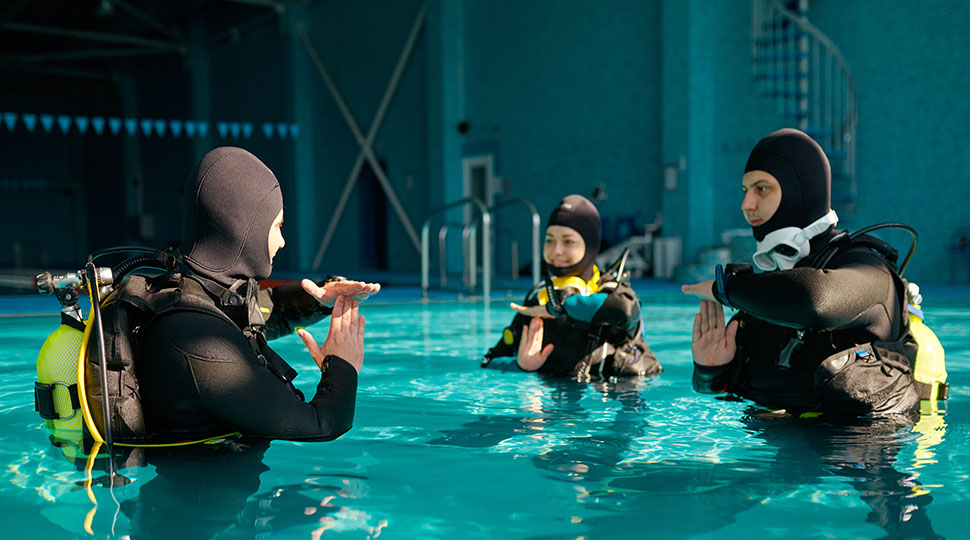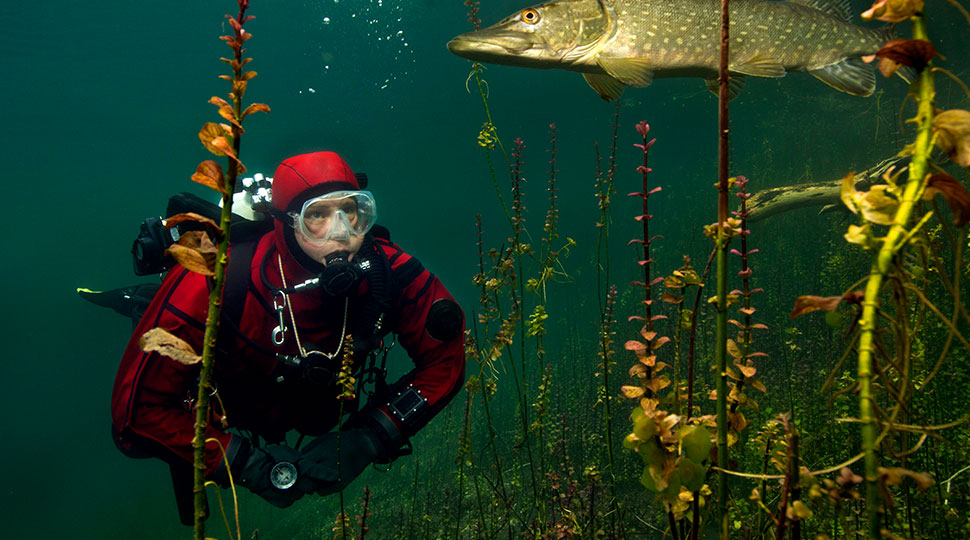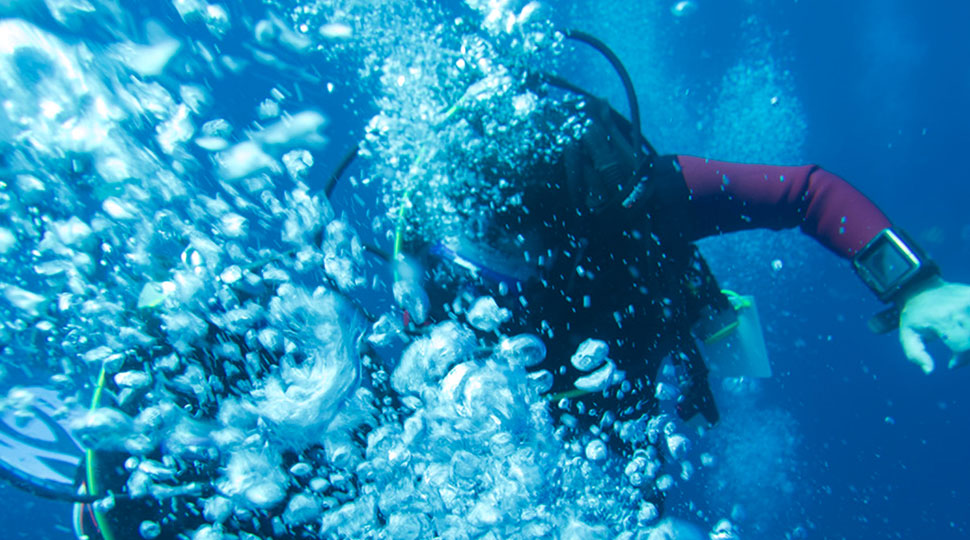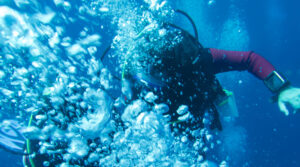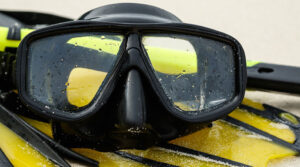At first glance, scuba diving and mental health may seem like an unlikely pairing. But for many individuals struggling with anxiety and depression, this underwater sport has become a lifeline.
Scuba diving and mental health share a common thread – both are deeply connected to the human experience.
As we explore the benefits of scuba diving for mental well-being, it’s clear that this activity offers more than just a thrilling adventure – it provides a unique opportunity for personal growth, social connection, and stress relief.
Scuba diving has a way of transcending the surface level of our daily lives, allowing us to tap into a deeper sense of purpose and fulfillment. By immersing ourselves in the underwater world, we can quiet our minds and focus on the present moment, letting go of worries and anxieties that plague us on land.
Diving is not just about exploring new depths or discovering hidden treasures – it’s about cultivating a sense of inner peace and connection to oneself.
The Benefits of Scuba Diving for Mental Health
One of the most significant advantages of scuba diving is its ability to reduce stress levels.
The relaxation techniques used during dives, such as controlled breathing and focus on the present moment, can have a profound impact on an individual’s mental state. Many divers report feeling more calm and centered after a dive, which can be especially beneficial for those struggling with anxiety.
By slowing down our heart rate and calming our nervous system, scuba diving provides a natural antidote to the fast-paced, high-stress world we live in.
Another benefit of diving is the sense of accomplishment that comes from overcoming challenges underwater.
Whether it’s navigating through strong currents or conquering fears about depth or darkness, divers develop a confidence that translates to other areas of life. This increased self-assurance can be particularly helpful for individuals dealing with depression, who often struggle with feelings of inadequacy and low self-esteem.
Through pushing past their comfort zones and achieving success in the underwater world, divers can build resilience and develop a greater sense of self-worth.
Scuba diving also provides an opportunity for social connection and community building.
Joining a scuba group or club can be a great way to meet like-minded individuals who share similar interests and passions. This sense of belonging and camaraderie can be especially important for those struggling with mental health issues, as it offers a support system and a feeling of being part of something larger than oneself.
From sharing experiences and stories with fellow divers, we can build meaningful connections and develop a sense of belonging that transcends our individual struggles.
Finally, exposure to nature and the calming effects of being in a natural environment are significant benefits of scuba diving.
The underwater world is full of beauty and wonder, from colorful fish to coral reefs and shipwrecks. Immersing oneself in this environment can be incredibly therapeutic, providing a sense of awe and connection to something greater than oneself.
When we embrace the majesty and mystery of the ocean, we can tap into a deeper sense of purpose and meaning, and find solace in the natural world.
How Scuba Diving Helps Improve Mental Health Issues
Many individuals have found diving to be a transformative experience that has helped them cope with mental health issues. For those struggling with anxiety and depression, scuba diving can provide a sense of solace and comfort. The activity allows individuals to focus on the present moment, letting go of worries and concerns. The experience can be likened to meditation underwater, helping to clear the mind and feel more grounded.
Scuba can also help individuals overcome specific fears and anxieties. Those who have experienced panic attacks in enclosed spaces may find that scuba diving helps them manage their anxiety and eventually overcome their fear.
Through this process, individuals can build resilience and confidence in the face of adversity.
Scuba diving can provide a sense of community and connection for those who may be struggling with social anxiety or feelings of isolation. By joining a club, individuals can meet like-minded people who share their passion for the sport, and find a sense of belonging and camaraderie that may have been lacking in their lives.
As a shared sport, it can give individuals a sense of purpose and connection that they may not have thought possible.
The Science Behind Scuba Diving's Mental Health Benefits
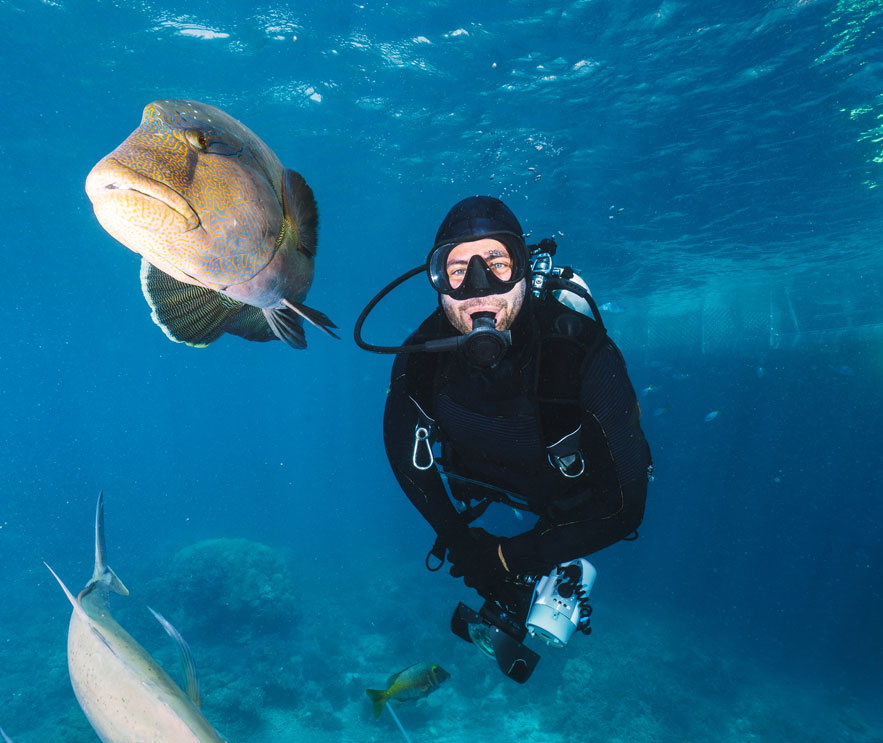
So, what’s behind the mental health benefits of scuba diving?
Research suggests that the physiological effects of scuba on the brain play a significant role. The increased production of neurotransmitters like serotonin and dopamine can help alleviate symptoms of depression and anxiety.
The sensory experiences of scuba diving – such as weightlessness, underwater sounds, and the sensation of floating – can have a calming effect on the mind.
Studies have shown that scuba diving can also stimulate the release of endorphins, which are natural painkillers that can help reduce stress and anxiety. The sense of accomplishment that comes from overcoming challenges underwater can boost self-esteem and confidence, helping individuals build resilience in the face of adversity.
The sensory experiences of scuba diving can also have a profound impact on the mind.
The sensation of weightlessness, for example, can be incredibly calming, as it allows individuals to let go of their worries and concerns. The sounds of the underwater world – such as the gentle hum of fish or the rush of water through coral reefs – can be meditative, helping individuals focus on the present moment and quiet their minds.
The Safety Stop
Scuba diving is more than just a sport or hobby – it’s a tool for mental wellness.
By incorporating this activity into one’s self-care routine or seeking out scuba diving communities and groups for support, individuals struggling with anxiety and depression can find relief and a sense of purpose.
The relaxation techniques used during dives, the sense of accomplishment that comes from overcoming challenges, or the social connections formed through scuba diving, this underwater sport offer a unique opportunity for personal growth and healing.

